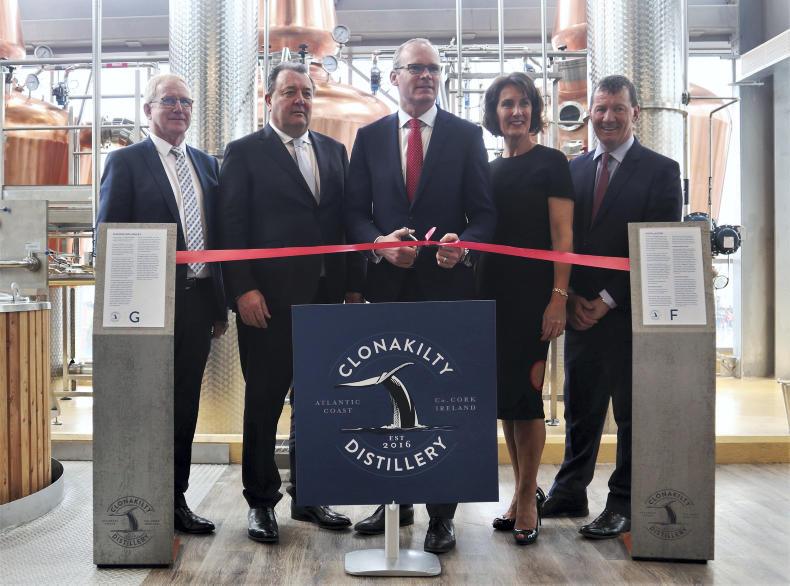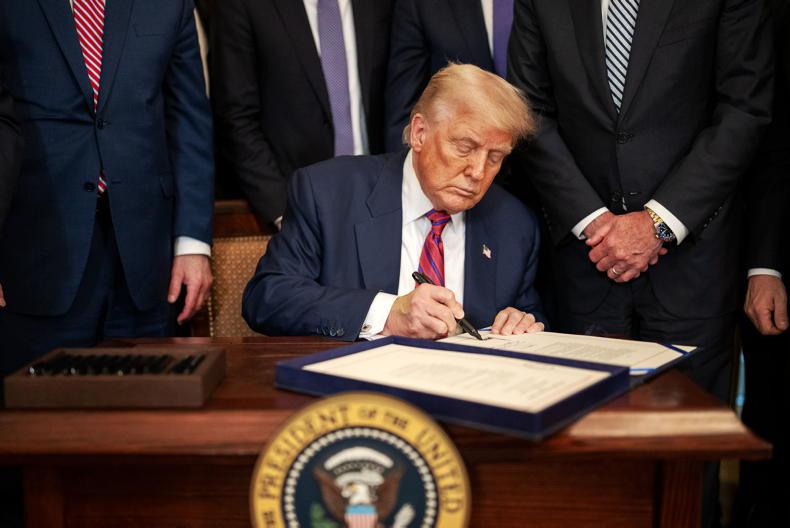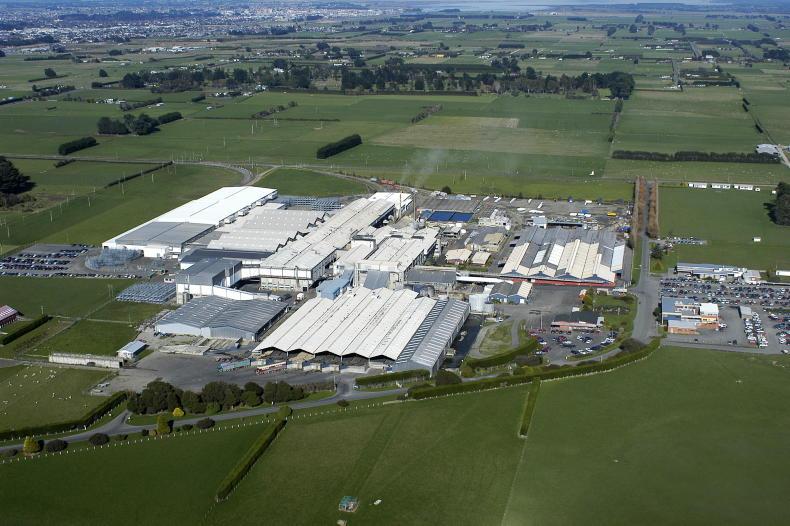The whiskey industry will become a big part of the tourism trail, as well as an industry that sells increasing quantities of spirits globally, Tánaiste Simon Coveney said at the launch of a new €10m distillery in Clonakilty, Co Cork, on Monday.
Recalling his time as Minister of Agriculture, he said: “At that point in time, the whiskey industry was starting to change. We have seen a renaissance in the sector since the beginning of the century. We have gone from seeing three or four distilleries in Ireland to there now being almost 40.”
40% of exports
Whiskey now accounts for 40% of drink exports.
“We have seen a growth that has gone from selling about 200,000 cases of whiskey a year to almost 11m cases of Irish whiskey sold in 2018," said the Tánaiste.
"The industry is now exporting about €650m worth of whiskey a year.”
The state-of-the-art distillery in Clonakilty has created 35 new jobs and is expected to export to overseas markets in the USA and Asia among others.
Clonakilty Distillery CEO Michael Scully said: “We’re thrilled that the big day has finally arrived and we can welcome visitors to the distillery. The Clonakilty visitor experience is hoping to attract in excess of 35,000 visitors annually.”
In addition to a triple-distilled single pot still whiskey produced from local grain grown on the Scully family farm, the distillery also produces Minke Gin.
Michael and Helen Scully, the principals in Clonakilty distillery were previously directors of Castle Carbery Properties.
The investment company, in which farmers were the main investors, went into liquidation in 2015 following some unsuccessful investments in Poland.
Brexit
On Brexit, An Tánaiste said that it is difficult to determine what funds will be needed until there is a clearer picture on what a no-deal Brexit could look like.
“It’s very hard at the moment to know whether there will be tariff or non-tariff or both barriers to trade. The British government haven’t made up their mind on their approach to tariffs in the context of a no-deal.
“But we all need to work to avoid that kind of dramatic situation where Britain might crash out without any deal. I don’t think that will happen, but we have to prepare for it, just in case.
“That’s why we are having very intensive discussions with the European Commission in terms of how Ireland could be supported in that type of scenario, given our reliance on the British market, particularly for beef and dairy products but also pig-meat and poultry products as well.
“We are planning for the worst just in case it happens, but we are working night and day to make sure that the worst does not happen,” he said.
Read more
Farmers need to be adequately compensated for growing malting barley – IFA
Victims of our success when it comes to food and drink
From medicinal cannabis to Irish whiskey – the alternatives for tillage
The whiskey industry will become a big part of the tourism trail, as well as an industry that sells increasing quantities of spirits globally, Tánaiste Simon Coveney said at the launch of a new €10m distillery in Clonakilty, Co Cork, on Monday.
Recalling his time as Minister of Agriculture, he said: “At that point in time, the whiskey industry was starting to change. We have seen a renaissance in the sector since the beginning of the century. We have gone from seeing three or four distilleries in Ireland to there now being almost 40.”
40% of exports
Whiskey now accounts for 40% of drink exports.
“We have seen a growth that has gone from selling about 200,000 cases of whiskey a year to almost 11m cases of Irish whiskey sold in 2018," said the Tánaiste.
"The industry is now exporting about €650m worth of whiskey a year.”
The state-of-the-art distillery in Clonakilty has created 35 new jobs and is expected to export to overseas markets in the USA and Asia among others.
Clonakilty Distillery CEO Michael Scully said: “We’re thrilled that the big day has finally arrived and we can welcome visitors to the distillery. The Clonakilty visitor experience is hoping to attract in excess of 35,000 visitors annually.”
In addition to a triple-distilled single pot still whiskey produced from local grain grown on the Scully family farm, the distillery also produces Minke Gin.
Michael and Helen Scully, the principals in Clonakilty distillery were previously directors of Castle Carbery Properties.
The investment company, in which farmers were the main investors, went into liquidation in 2015 following some unsuccessful investments in Poland.
Brexit
On Brexit, An Tánaiste said that it is difficult to determine what funds will be needed until there is a clearer picture on what a no-deal Brexit could look like.
“It’s very hard at the moment to know whether there will be tariff or non-tariff or both barriers to trade. The British government haven’t made up their mind on their approach to tariffs in the context of a no-deal.
“But we all need to work to avoid that kind of dramatic situation where Britain might crash out without any deal. I don’t think that will happen, but we have to prepare for it, just in case.
“That’s why we are having very intensive discussions with the European Commission in terms of how Ireland could be supported in that type of scenario, given our reliance on the British market, particularly for beef and dairy products but also pig-meat and poultry products as well.
“We are planning for the worst just in case it happens, but we are working night and day to make sure that the worst does not happen,” he said.
Read more
Farmers need to be adequately compensated for growing malting barley – IFA
Victims of our success when it comes to food and drink
From medicinal cannabis to Irish whiskey – the alternatives for tillage










SHARING OPTIONS